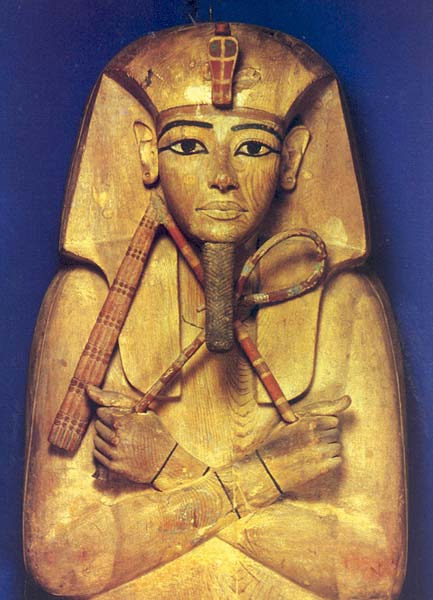Image Details

Jurgen Liepe
“A new king arose over Egypt, who did not know Joseph” (Exodus 1:8). The hardhearted pharaoh who oppressed the Israelites is never identified by name in Exodus, a crucial missing detail that, for some, casts doubt on the Biblical account. But, author Millard writes, it was customary in Ramesses’ time to call the king simply “pharaoh,” as if it were a proper name. Ramesses the Great (1279–1213 B.C.), whose mummy was found in this cedarwood sarcophagus, may have been the tyrant who enslaved the Israelites and forced them to build supply cities, one of which was named after him and was known to be a royal city during the Exodus period. Ramesses’ cartouche has been found on ruins at the possible site of the other supply city, Pithom. Both sites were abandoned in later centuries. That the Book of Exodus, Millard argues, was familiar with the cities indicates that it must date very close to the times it describes.
